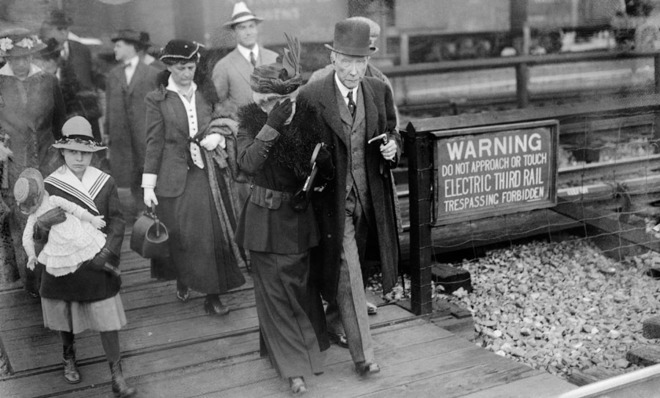Why the Rockefellers are betting on renewable energy
Sure, it's mostly symbolic. But the global energy business is also on the cusp of a dramatic transformation.

A free daily email with the biggest news stories of the day – and the best features from TheWeek.com
You are now subscribed
Your newsletter sign-up was successful
The name Rockefeller is deeply synonymous with turning oil into gold. Familial patriarch John D. Rockefeller founded Standard Oil in 1870 and bought up most of the oil refineries in the United States, eventually controlling over 90 percent of the American oil business. "Competition," he said, "is a sin."
That empire, in inflation-adjusted terms, made him the richest man in history with a fortune estimated at $336 billion in 2010 dollars. The Standard Oil monopoly, meanwhile, was broken up and evolved into the global oil brands Exxon-Mobil, Amoco, and Chevron.
But the times they are a-changin', and you don't need to be a weatherman to know which way the wind blows.
The Week
Escape your echo chamber. Get the facts behind the news, plus analysis from multiple perspectives.

Sign up for The Week's Free Newsletters
From our morning news briefing to a weekly Good News Newsletter, get the best of The Week delivered directly to your inbox.
From our morning news briefing to a weekly Good News Newsletter, get the best of The Week delivered directly to your inbox.
Rockefeller's descendants — who still control a cool $860 million through the family philanthropy, the Rockefeller Brothers fund — are dumping the endowment's investments in the oil business and reinvesting at least a portion of that wealth into renewable energy.
And the Rockefeller fund is not the only big name fund divesting from fossil fuels and moving into renewables. The Divest-Invest movement — which the Rockefeller fund has joined — consists of 800 global investors, and has now moved $50 billion away from coal, oil, and gas and into renewable energy as part of a broader push to battle climate change and promote economic and energy sustainability.
Now, the Rockefellers' $860 million isn't much in the grand scale of the global energy business. The global energy trade is a $5 trillion a year business, so even the larger $50 billion divestment equates to merely 1 percent of the size of the global energy trade. And renewables today are merely 11 percent of the global energy business. Plus, the Rockfeller Brothers fund has a philanthropic purpose, not an amoral money-making one, and the primary goal of the divestment seems mission driven.
But this is still an important symbol because the global energy business is on the cusp of a dramatic transformation.
A free daily email with the biggest news stories of the day – and the best features from TheWeek.com
As Stephen Heintz, president of the Rockefeller Brothers Fund, said in a statement:
John D Rockefeller, the founder of Standard Oil, moved America out of whale oil and into petroleum. We are quite convinced that if he were alive today, as an astute businessman looking out to the future, he would be moving out of fossil fuels and investing in clean, renewable energy. [The Guardian]
Why? As I wrote last December, renewable energy and particularly solar are on a very steep price trend downward thanks to a continued spurt of technological innovations that have reduced the cost of manufacturing. If the trend of falling prices continues for another 10 years, solar-generated electricity in the U.S. will descend to a point where it's competitive with coal and nuclear — by 2020, or even 2015 for the sunniest parts of America. And if the trend continues for the next 20 years, solar costs will be half that of the price of coal today.
Meanwhile, as fossil fuel stocks have been gradually burned away, the costs of drilling are rising as the easy-to-extract stuff near the surface is exhausted. Today, complex extraction practices such as fracking are unleashing new fossil fuel supplies onto global markets but at a vastly higher cost than in John D. Rockefeller's day. That makes the renewable energy revolution low hanging fruit for the next generation of energy tycoons.
So it's no surprise to me that the Rockefeller family believes their ancestor would be behind their move. They're right.
John Aziz is the economics and business correspondent at TheWeek.com. He is also an associate editor at Pieria.co.uk. Previously his work has appeared on Business Insider, Zero Hedge, and Noahpinion.